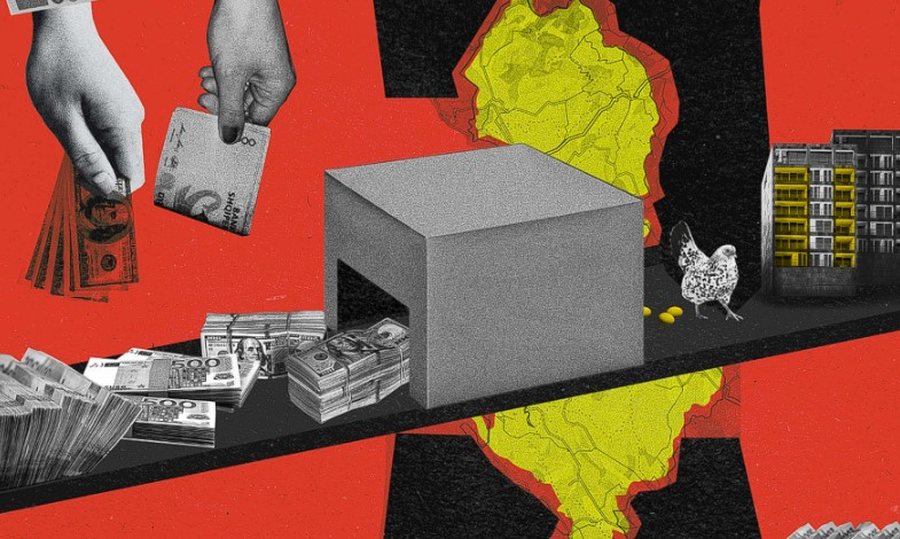
For more than three decades, Albania has been facing the fight against corruption, a disease already established in the system and poisoning every segment of society and economy. Unfortunately, we are mentioned in all the reports of local and international institutions for the high level of corruption, which makes life expensive and difficult for everyone, without exception.
About two weeks ago, the head of SPAK, Altin Dumani, was declared an anti-corruption champion by the US State Department, a clear message from our main international partner that Albania must be decisive and tough in the fight against this phenomenon, which is holds the country's development hostage.
In a modern consumerist society, everything starts and ends with money. But what is corruption in the economy?
It is considered a destructive phenomenon, which is opposed to the legality and principles of the economy. Also, it translates as a hidden tax on citizens and businesses.
But corruption is not an abstract concept. It has a financial cost, which is paid by all and is benefited by a single minority in power or connected to power. How much does corruption cost the state budget and Albanian citizens?
The research center Altax has estimated in a report that the cost of corruption is estimated at around 10% of public expenditures. In 2022, corruption has cost us 515 million euros, while it has increased to 575 million euros last year, in parallel with the increase in government spending.
Albania continues to be classified among the countries with the highest level of corruption in the world.
In the Transparency International ranking, with a classification from 0 to 100 points, where 0 points are the most corrupt countries and 100 points are the least corrupt, our country has been evaluated with 37 points, with an almost negligible improvement compared to 2022. While it has remained within the same points zone since 2023.
Even at the world level, Albania ranks among the most problematic countries in terms of corruption, ranking 100th, with a slight improvement in recent years.
The International Monetary Fund estimates that countries that collect more revenue are perceived as less corrupt.
Albania is the penultimate country in the region for revenue collection with only 27.2% of the Gross Domestic Product. We leave behind only Kosovo, while the countries with the highest level of income are Serbia and Montenegro.
Corruption is considered a gangrene for the country's future, as it erodes the present. In the economy, the impact is comprehensive and has consequences at all levels. But how does corruption affect the economy?
Let's look at a simple scheme. A high level of corruption leads to a misuse of citizens' taxes, causing public funds not to go to basic sectors, such as education and health, but to certain hands. Consequently, the budget will always need money and this will lead to an increase in the level of taxes, a burden that businesses will offload to citizens by increasing the prices of products and services in the market, putting pensioners and consumers in difficulty.
Aware of the high level of corruption, with consequences for citizens' pockets, business finances and the economy, the government has pledged to fight against this phenomenon. In the last 10 years, several anti-corruption conferences have been held, the main culprits who poison the system and transmit corruption to the lower levels have also been publicly denounced, several action plans have been announced. But corruption continues, almost as healthy and intact.
Under international pressure, seeing the comprehensive extent of corruption, but also to prove the commitment that the government is serious about the fight against corruption, Prime Minister Rama changes the structure of the government and creates in January of this year a state minister for public administration and anti-corruption. corrupt, at the head of which he places Andea Pinder.
A few months later, the 2024-2013 cross-sectoral anti-corruption strategy is ready, with measures to combat this phenomenon. These are movements that occur in parallel with the provision of public services digitally, or in other words, online, to minimize direct contact between citizens, businesses and state employees.
But do these measures guarantee the real fight against corruption and can they lead to a minimization of corruption in Albania?
What should the experts expand that the government has not done and that should be undertaken as soon as possible, so that the impact of corruption on the Albanian economy and society shrinks?
Economics and money are faith. If you believe in the market and the economic system of the country, you consume and invest and consequently, the economy develops. Corruption is what erodes trust and, as a result, the future of a country. For A2 CNN, Aurora Sulce. (A2 Televizion)











